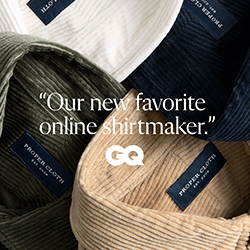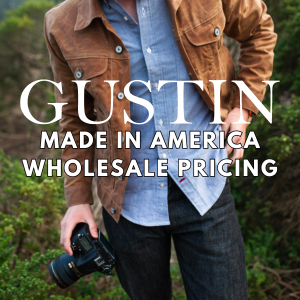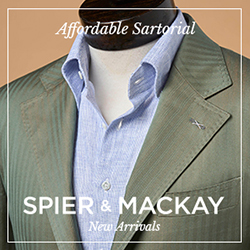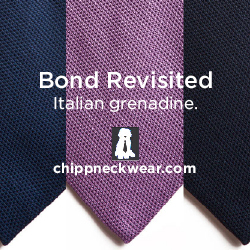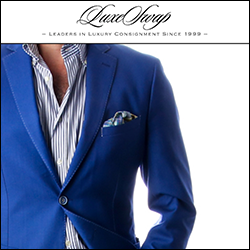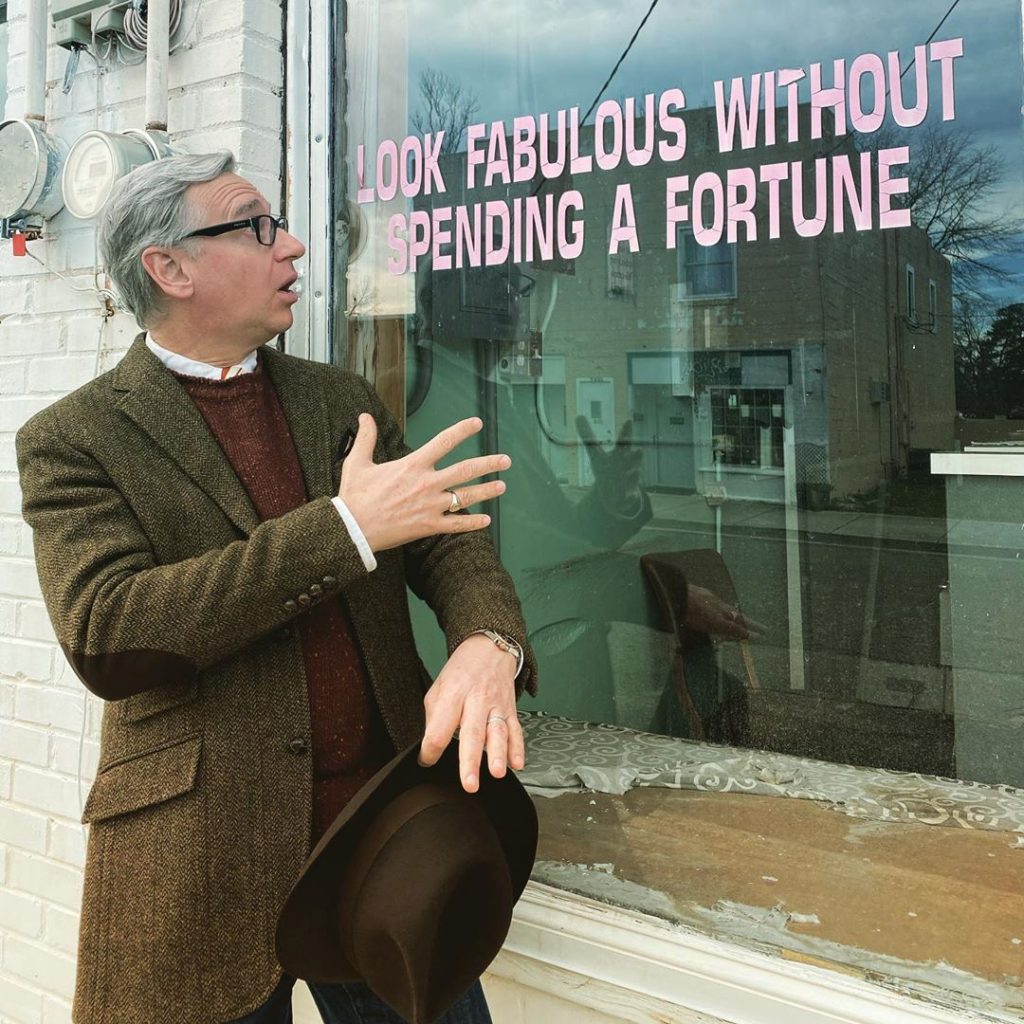
Clothing prices are significantly outpacing inflation, with men’s clothing leading the way. In 2010, J. Press’s iconic Shaggy Dog sweaters cost $165. Exactly ten years later, the same style is $245, a 51 percent increase. Outerwear above the $1,000 mark barely existed ten years ago. Now they’re commonplace. Over at Mr. Porter, you can find a silk and cotton-blend t-shirt for over $800 and a blue sequinned bomber jacket for nearly $10,000. Boutique prices are often not that much better.
So, for the last few months, we’ve been doing a series on our favorite value-focused brands. To be sure, value is subjective. Unlike electronics, clothing is more about design than build-quality specs, which makes it challenging to compare things across the board. Style is also deeply tied to personal taste, body type, and identity. The best value is going to come from the clothes you love wearing the most.
At the same time, value can be a useful concept when you’re starting out in any area. Broadly speaking, it’ll be about those items that meet a certain build quality, while not costing a fortune. Full-grain, Goodyear welted shoes are generally a better value than corrected-grain, cemented ones. True value is about finding clothes you love to wear, but there are some brands that we think strike a particularly good balance between building quality and price.
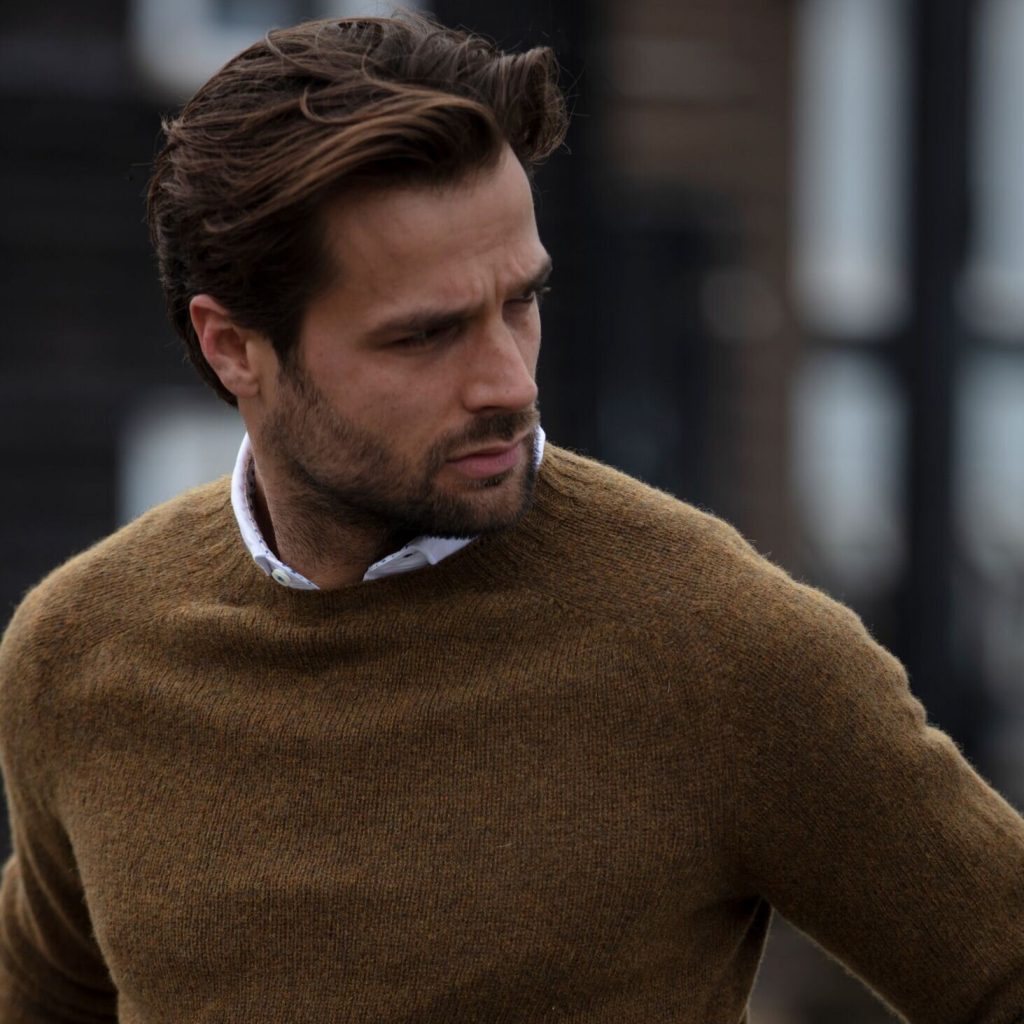
Harley of Scotland
When it comes to value in knitwear, it’s hard to beat a Shetland. Quality cashmere is too costly; merino can be visually flat. Shetland knits have a lovely sponginess and they’re exceptionally hard-wearing. The style gets its name from the Shetland Islands, which are located off the north coast of Scotland. Due to the harsh conditions of the region, the sheep produce a sturdy, lightweight, long-staple wool fiber, which is typically plucked instead of shorn. And while Shetland knits are a staple in classic American style — having been sold at Brooks Brothers for over a century — they’ve also been part of contemporary lines such as Margaret Howell, Lemaire, and Our Legacy, as well as some workwear collections. The style goes just as well with slim tailored trousers as it does with jeans, classic topcoats or wacky Engineered Garments outwear. A Shetland knit is the kind of thing you can purchase now and be assured it’ll still fit into your wardrobe if your sense of style evolves.
My favorites are from O’Connell’s, but at $195 per sweater, they’re dearly expensive. For an affordable alternative without sacrificing much, if anything, in terms of quality, try Harley. Established in 1929, this Scottish company produces high-end knitwear from quality yarns (the Shetland yarns are from JC Rennie, Geelong wool is from Todd & Duncan). They also knit on the round, which means there are no side-seams, and the body has a gentle taper. You can find them for about $115 at Bosie, Dicks of Edinburgh, and Old Brye. Since the yarns are often used for Fair Isle knitting, they come in some of the best color selections. Spruce greens, oyster grays, coffee browns, heathered oats, lemon yellows, dusty pinks, and so forth.
What You Give Up: Shetlands are hardy, but they can also be itchy. The same things that make them so lovely — the toughness, durability, and spongey texture — are what turn some people off to the material. They’re too itchy to wear against bare skin, so you’ll need to layer this over a long-sleeved shirt (I wear mine over oxford-cloth button-downs). If you scour eBay, you can also find vintage Shetland sweaters in near-mint condition for about thirty bucks. These things last forever.
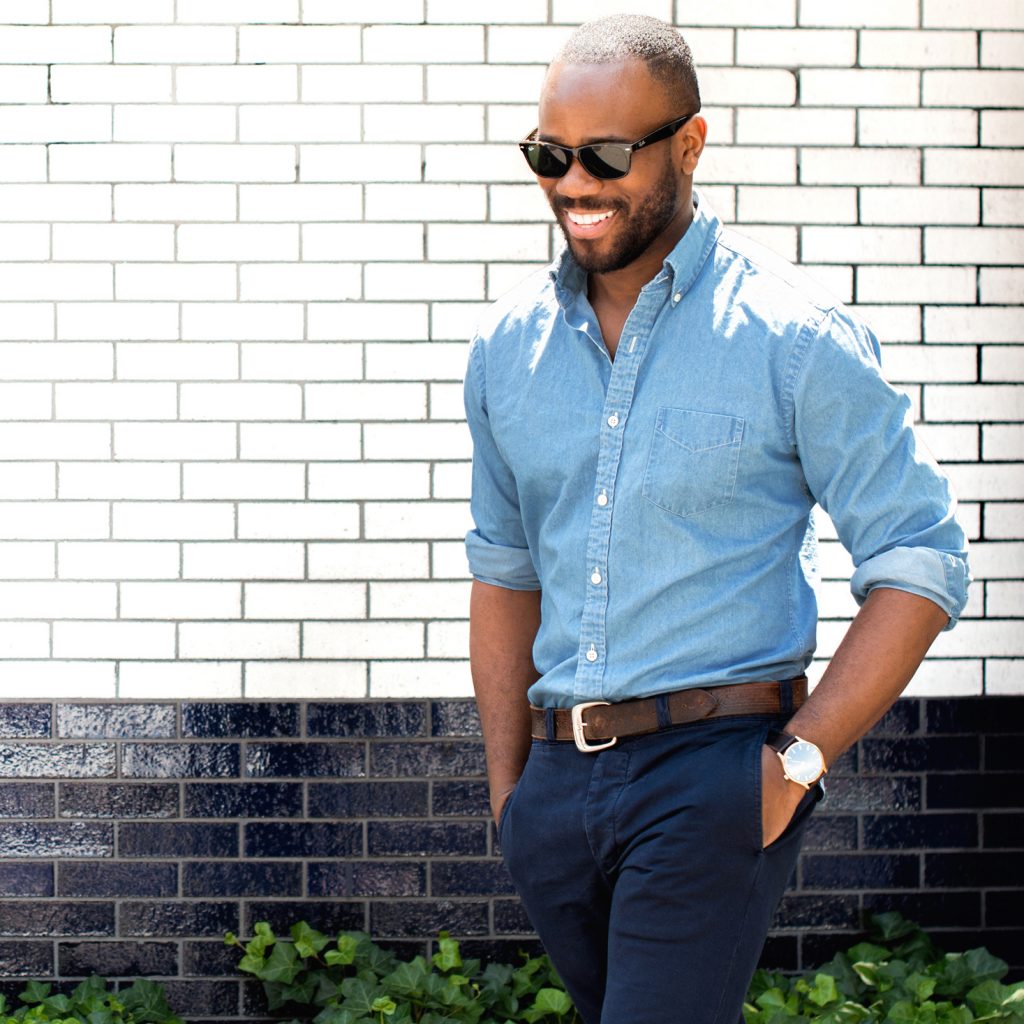
Proper Cloth
Let me make a case for spending a bit more money. Proper Cloth (an advertiser on this site) is an online custom shirtmaker. Their shirts aren’t the cheapest you can find, but with prices starting around $85, they’re also not that much more than mid-range ready-to-wear. The upside to using a custom shirtmaker is that you save on time and alterations costs. Ready-to-wear shirts sometimes need a bit of adjustment here or there, which can run twenty or thirty bucks. Add to that the process of finding the right shirt every season — hunting down something with the exact fabric, fit, and style you want — and time can quickly become its own expense.
Of the dozen or so custom shirtmakers I’ve used over the years, Proper Cloth is the best in terms of online made-to-measure. They carry stock sizes if you don’t want to bother with custom-tailoring. Or you can customize their stock sizes by submitting your body measurements or the measurements of your best fitting shirt (I choose the second). The company also offers a free remake on all first time orders, which allows you to home-in on that perfect fit (a service I took advantage of). Once you nail down your size, all subsequent orders are just a few clicks away. Choose your fabric and style details, and the perfect shirt will arrive at your door a few weeks later — no need to constantly shop around.
The value here will mostly show up in the long run, as you’ll find it’s much easier and quicker to build a shirt wardrobe without having to buy different sizes and cuts from various brands when they happen to have what you want. The company even has casual options: Aloha-style prints, indigo cottons, and washed chambrays, which can be made into any style, including popovers, Westerns, and camp collar button-ups. For reviews of Proper Cloth’s shirts, check the blogs From Squalor to Baller and Menswear Musings (Mitchell at Menswear Musings has a good buyer’s guide). I think Proper Cloth’s “Soft Ivy Button-Down Collar” is exceptionally handsome.
What You Give Up: Since Proper Cloth’s shirts are made-to-measure, they can’t account for as many things as bespoke, such as asymmetrically sloped shoulders. However, there are few bespoke shirtmakers left in the United States (those who advertise themselves as such are not always actually bespoke shirtmakers). If you want a bespoke shirt, you will likely have to rely on a traveling tailor, such as Dege & Skinner, Budd Shirtmakers, Turnbull & Asser, or Ascot Chang. On the upside, Proper Cloth’s made-to-measure shirts are about half the price of bespoke, while achieving 90% of the fit. Many bespoke shirtmakers also can’t produce the kind of casual shirts Proper Cloth offers.
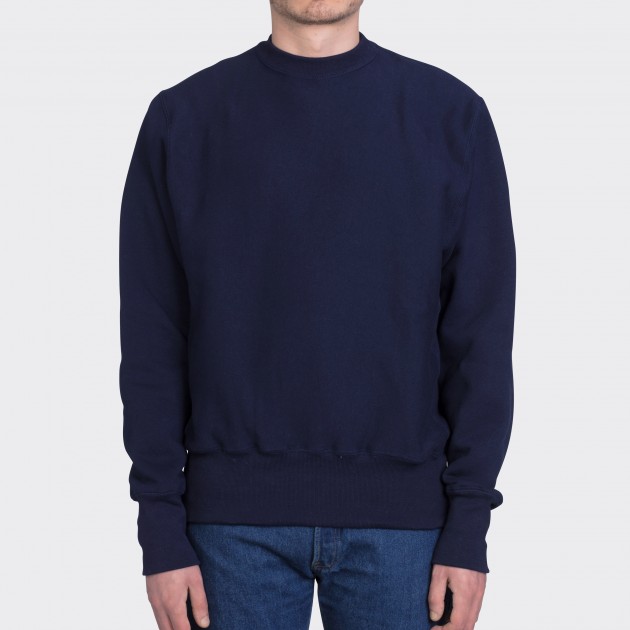
Camber
Vintage pickers speak wistfully of the Golden Age of American sportswear, when rubber soles were thick, cotton sweatshirts were stout, and denim was always woven on narrow looms. Today, many of these classics have been watered down. Champion’s current sweatshirts, while decent, aren’t quite as beefy as their 1980s classics. If you want that old American sportswear look, you have to fight for the originals on eBay, where prices can soar, or seek out upscale brands.
Some companies, however, have changed very little. For years, Portland-based Camber has been the label-under-the-label for various streetwear and designer brands, including Bape-offshoot Very Ape, Futura-labeled stuff, and rumor has it, Engineered Garments’ Workaday line (look for a made-in-USA label). Camber is known for making hefty, pure cotton sweatshirts and t-shirts. Their extra-heavy, waffle-lined sweats could even qualify as outerwear. Most pieces come in familiar, collegiate colors such as grey, pine green, burgundy, navy, and black.
What You Give Up: Most modern sweatshirts these days are slim and streamlined. Camber’s sweats, on the other hand, are meant to be roomy. These are better if you like a particular classic American sportswear look, rather than updated takes on the originals (think of vintage gear vs. J. Crew). To get the best deals, you’ll also have to order from sites such as All USA Clothing or All Seasons Uniforms. Their presentations aren’t that compelling, so you have to Google around to see how the garments fit on models. They also require a wait time. For faster delivery, try the Wooden Sleepers, one of our favorite vintage stores. Their branded sweats are printed on Camber blanks. Readers in Europe can also pick up Camber through Beige Habielleur.
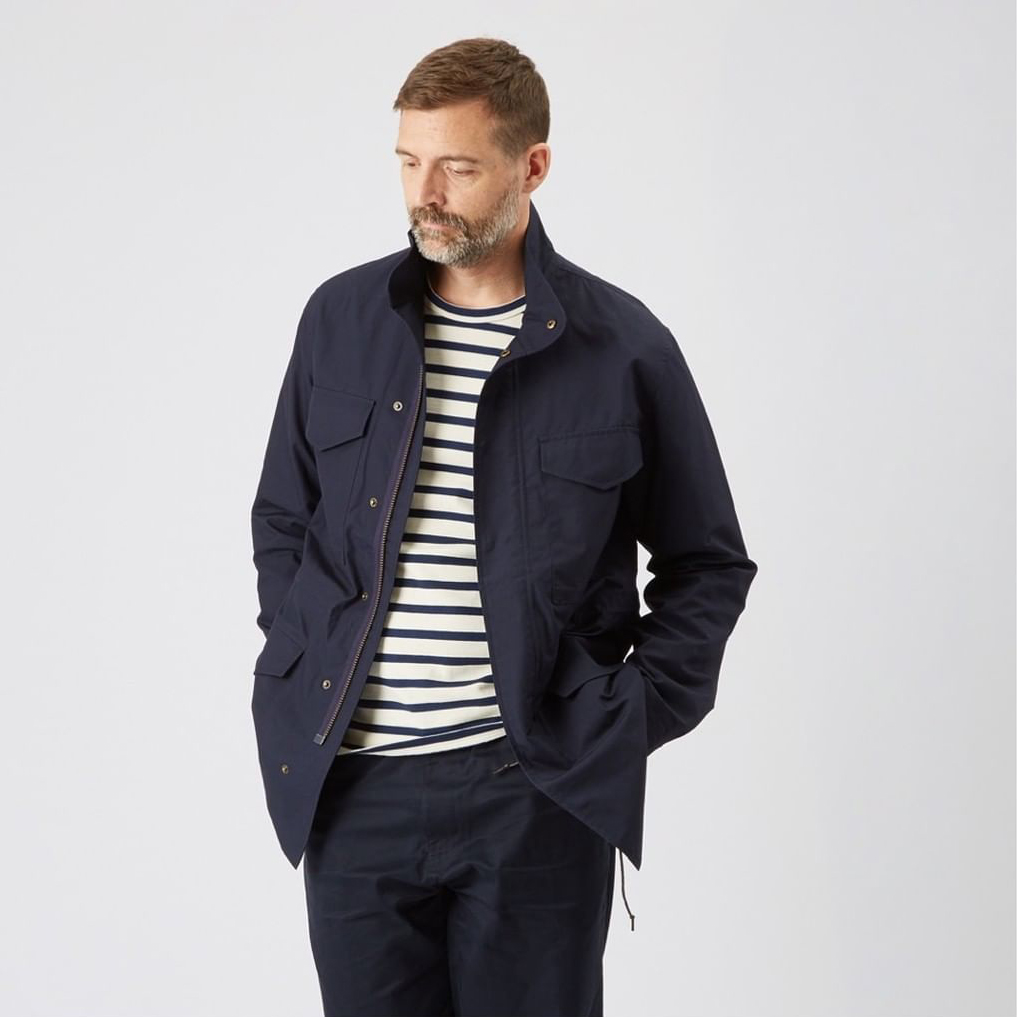
Community Clothing
A few years ago, Patrick Grant bought a factory in Blackburn, England. Grant is the owner and director of Norton & Sons and E. Tautz, the host of The Great British Sewing Bee, and a candidate for the Most Handsome Man in the World. He’s also passionate about British jobs and manufacturing. So when the opportunity came up to purchase a beleaguered factory, he took it.
In the clothing trade, every factory struggles with the same challenge. Since the fashion industry is organized according to a two-season calendar system (spring/summer and fall/winter), factories can have long periods when they’re nowhere near production capacity. This can lead to seasonal hiring and firing, zero-hour contracts, or worse, factory closures. To solve this problem, Grant developed an in-house factory line named Community Clothing, which he sells directly to consumers.
Community Clothing aims to give people British-made clothes at affordable prices. By minimizing the number of sewing operations, they can monitor quality where it counts, such as their choices in materials. For a pair of five-pocket, raw denim jeans made with felled seams and chain-stitched hem, Community Clothing charges just $82. For M-65-inspired field jackets and hooded mountain parkas cut and sewn from showerproof British Millerain cloth, you can expect to pay somewhere around $189. They even have loose, double-pleated chinos, presumably designed by the man who has been at the forefront of helping make this style popular again. Those are made from 7.5oz cotton drill fabrics sourced from Brisbane Moss, a British company that supplies many of the world’s best bespoke tailors.
What You Give Up: Readers often think that clothing quality is the straightness of the seams and the length of the fibers. But in practice, real quality is often about the time and energy it takes to produce a garment, which is directly tied to the types of sewing operations.
To meet their price points, Community Clothing can’t offer the fanciful designer clothes made with dozens of superfluous pockets and zippers (à la Engineered Garments). Instead, the designs are basic and classic and rely mostly on the quality of the sewing and fabrics. The prices are excellent, but the designs aren’t that different from what you might find at more affordable shops. You’re partly paying for the fact that these are made in England, not China, and come with an inspiring story. For customers outside of England, you’re also taking on some risk with international shipping. Community Clothing accepts returns, but since you have to pay for return shipping, it may be a hassle if things don’t work out. International customers also have to email them to place an order.
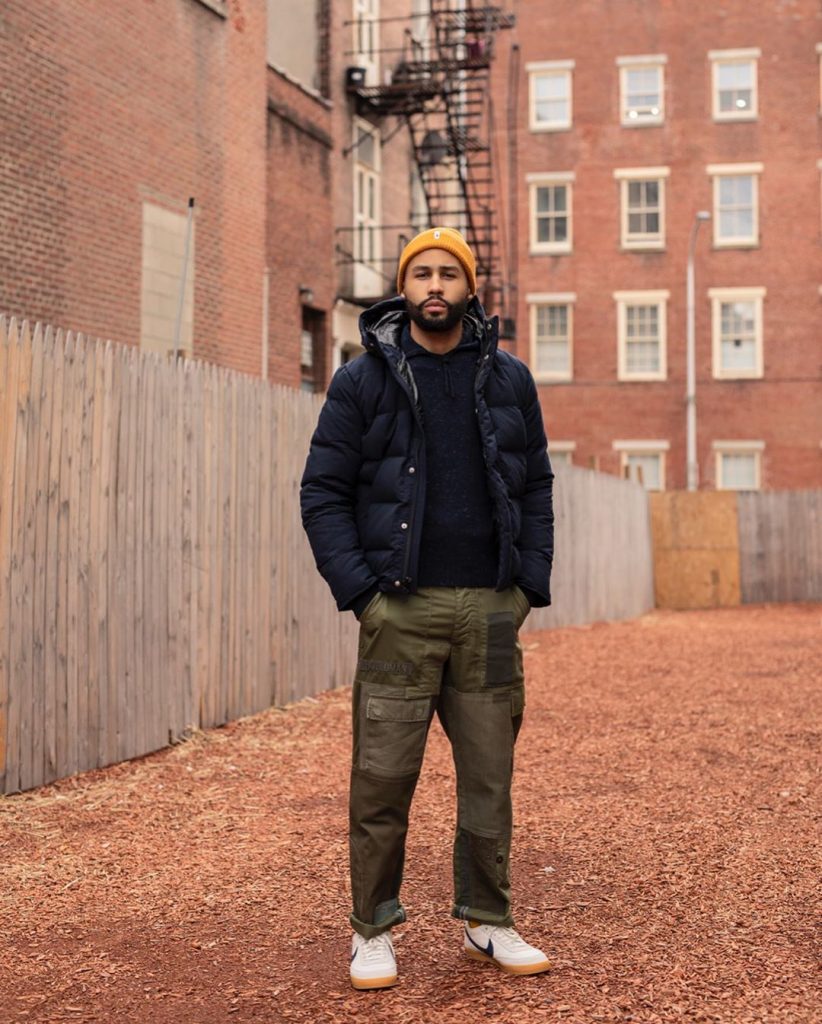
American Trench
In the last fifteen years, the internet has made it possible for small, boutique brands to pop up and offer customers more affordably priced products. Labels such as Kent Wang and Epaulet mostly serve a discerning online crowd that knows all about quality, construction, and materials but doesn’t want to pay for a heritage name. American Trench operates in that same spirit. Company founder Jacob Hurwitz is passionate about American manufacturing, so he has everything made here in the USA. On the company’s product pages, you can read about their factories and where they source materials. Prices are roughly 35% less than what you might pay elsewhere for the same product.
The company’s designs run the gamut from quiet to experimental. On their website this season, you can find simple Ventile zip-up jackets with a generous collar ($295) to terracotta-colored linen drawstring shorts ($75). Last season, they had patchwork BDU pants, insulating down coats, and remarkable snap-button jackets made from deadstock Woolrich fabrics. I also think their socks are spectacular. They’re just as good as the ones I’ve bought from Japan, but since these are made in the United States, they cost about half the price.
What You Give Up: Micro-sized brands such as American Trench operate with a very small marketing budget. Much of what they do is focused on product development, design, and production, as well as customer service. As such, their marketing is mostly aimed at giving you an impression of how the items look, rather than building on brand prestige. That can be a good or bad thing, depending on how much you want to buy into the fantasy of wearing a particular label. You are also paying a premium for a made-in-American product.
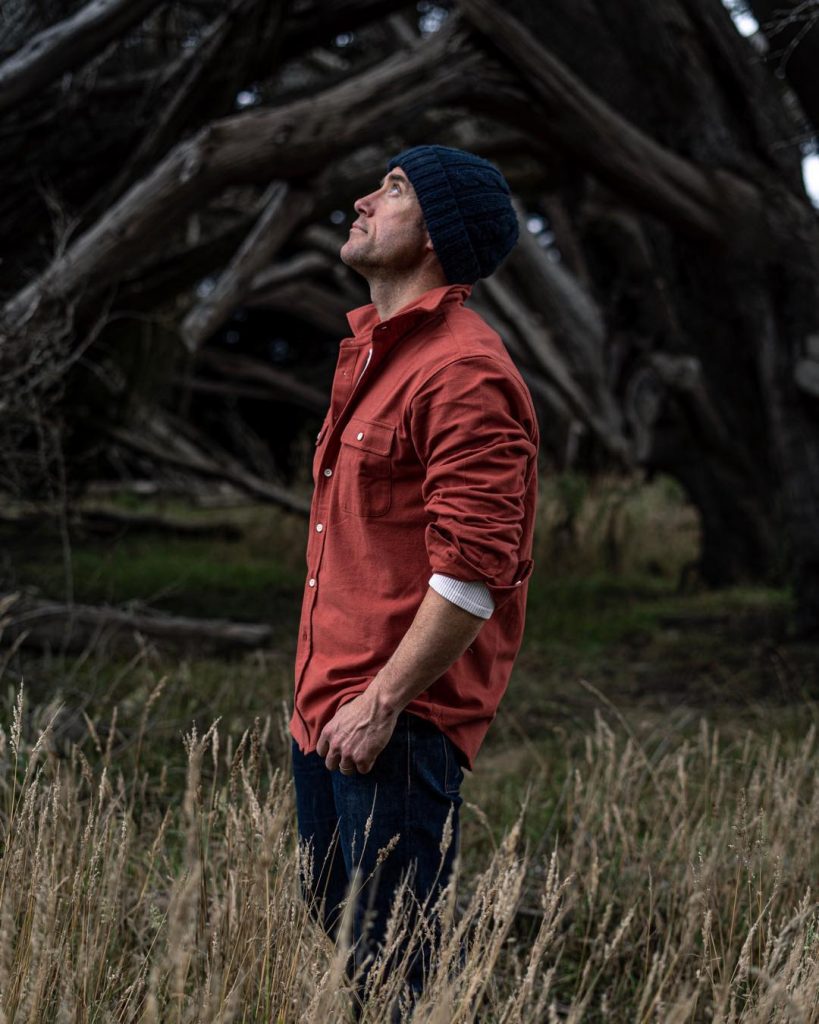
Taylor Stitch
J. Crew filed for Chapter 11 bankruptcy a few weeks ago, and while that doesn’t necessarily mean they’ll close up shop, many have wondered where they can turn for their usual J. Crew purchases. To be sure, I don’t think anyone solely replaces J. Crew — the company was a one-stop-shop with excellent prices — but we covered some companies that, when cobbled together, can somewhat resemble a J. Crew wardrobe.
One of those was Taylor Stitch, a San Francisco-based label specializing in Americana and outdoorsy styled apparel. The company uses a familiar online crowdfunding model: by collecting pre-orders online, they can keep costs down and thus pass some of that savings to consumers (they also hold stock, although those items are sold at a higher price). They also have a “Re-Stitch” program, where they repurchase garments back from customers, repair and clean them, and then sell them as discounted, second-hand clothes to other people. I mostly like the company for their casual shirts, Long Haul jackets, and leather jackets (made by Golden Bear in California)
What You Give Up: Taylor Stitch’s garments tend to be a better value when you buy them at their pre-order prices or use their promotional offers (first-time customers get a 20% discount when they sign up for the company’s emails). That doesn’t make for the most straightforward shopping experience, as you often have to wait months for delivery, but with a bit of patience, they can be an excellent way to build a wardrobe.
Some customers in recent years have also complained about the company offshoring its production. Taylor Stitch has responded by saying that they’ve found some overseas factories to be better than American ones (something we’ve heard often from people in the trade). They’re also better able to control for quality when they source things from one factory, rather than multiple ones. To be sure, some products, such as their leather jackets, are produced in the USA. However, most of their items are imported. Our friend Pete (pictured above) is a San Francisco-based construction worker who has been wearing Taylor Stitch’s garments to the job site for the last eight years. He tells us that the quality has not only stayed the same, but it’s comparable to other strictly American-made brands he’s worn. We’re inclined to believe him given his line of work.
“Value-Focused Brands” is a running series at Put This On. You can follow this tag for more posts.
